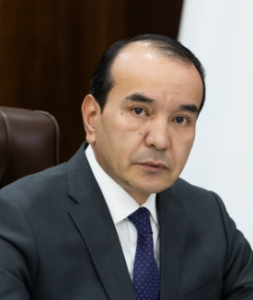
Culture and art are the foundation of civilization, national identity, and spiritual perfection, as well as important indicators of a country’s progress. The development of these spheres, reflecting the spiritual growth of the people, their past, present, and future, requires an approach that meets the demands of the times. This is why the reforms aimed at the development of culture and art in Uzbekistan carry profound meaning and are entering a new phase.
The words of the President of Uzbekistan Mr. Shavkat Mirziyoyev: “In these troubled times, it is increasingly difficult to preserve intrinsic and humanistic values. In such a challenging situation, true art, music, and literature, which originate from sacred sources and celebrate the ideals of humanism, must emerge as a life-affirming force, bringing peace and goodness to people, transcending the boundaries of time and space” serve as the guiding principle for current processes. Preserving national art, educating the younger generation through its beauty, and strengthening culture as an integral part of social life are considered essential elements of our country’s development.
The development of education in the field of culture and art plays a crucial role not only in improving the professional training system but also in ensuring the spiritual harmony of society. Modern and innovative teaching methods are being implemented to familiarize young people with the best achievements of national and global culture, fostering respect for their history and art. Tasks of the day include the use of credit-modular systems, the introduction of programs aligned with international standards, and enriching industry specialists with international experience.
Preserving the rich cultural heritage left by our ancestors and passing it on to future generations through modern technologies is of great importance for maintaining national identity and showcasing it to the world. In this context, efforts to digitize cultural heritage objects, expand their scientific study, and enhance their popularization are becoming key areas of international cooperation.
The national art schools of Uzbekistan and the tradition of “Ustoz-Shogird” (Master-Apprentice) play a unique role in ensuring harmony between national and contemporary culture. All necessary measures are being taken to create a bright future for the arts in our country, including identifying and supporting young talents.
The development of culture and art is reflected in all areas of public life. Every step in this direction represents a commitment to the spiritual growth of our people, respect for national values, and showcasing New Uzbekistan to the world.
In today’s process of globalization, the lifestyle, customs, and values of the world’s peoples are becoming closer, but at the same time, the struggle to preserve their national identity is intensifying. Under such conditions, culture becomes a powerful tool allowing nations to demonstrate their uniqueness.
In the context of globalization, national cultures, on one hand, open new opportunities on the global stage due to their distinctive appeal, while on the other hand, face the necessity of preserving themselves under the pressures of modernity.
Culture is not only the spiritual face of a nation but also a wealth that can be gifted to the entire global community. Therefore, in this process, the preservation and development of national culture, its promotion on the international stage, and its popularization through modern technologies gain paramount importance.
Careful preservation of ancestral heritage and its harmonious integration with modern ideas is not only a necessity but also a high goal. Utilizing the positive aspects of this process, showcasing the unique features of Uzbek culture on the global stage becomes an important criterion for the nation’s progress. ( The writer is Minister of Culture of the Republic of Uzbekistan)








